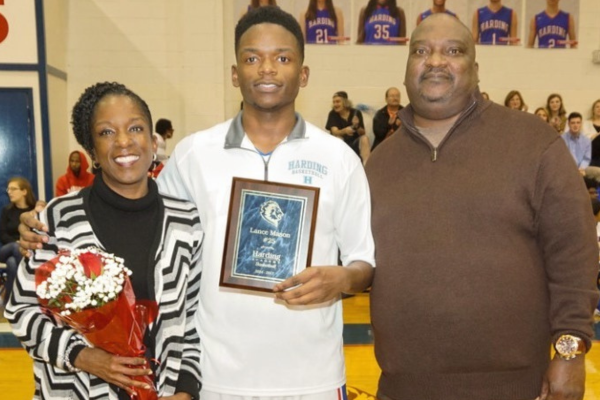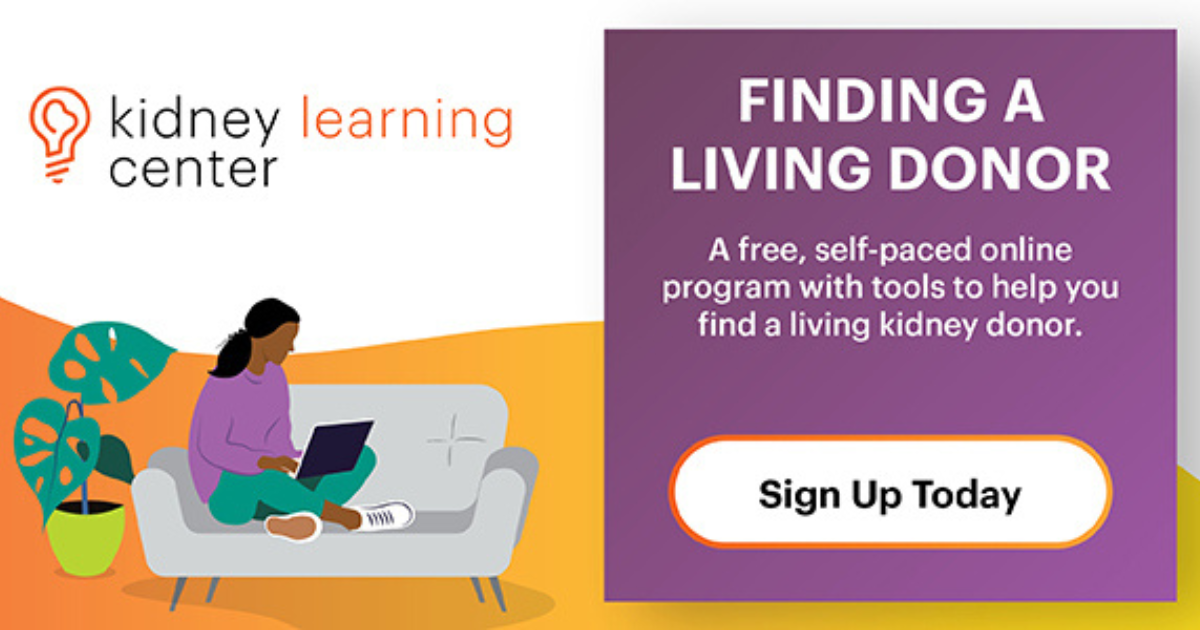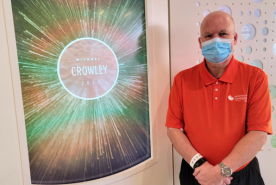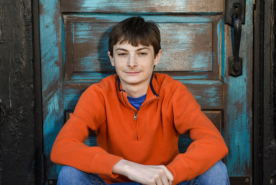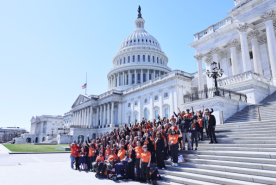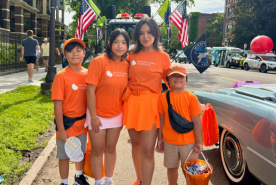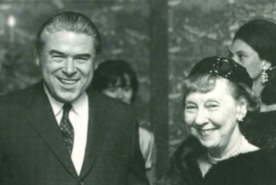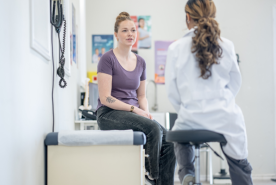July 25, 2023
Lance Mason's kidney journey began before he was even born–both his parents had kidney disease and had gone through dialysis and kidney transplants. Growing up, he went to doctor's appointments with his parents, attended dialysis sessions, and shared information about kidney disease with friends and family.
Despite Lance's involvement in the kidney disease world, he never expected to become a kidney patient. That all changed during his sophomore year of college.
Lance’s kidney disease diagnosis
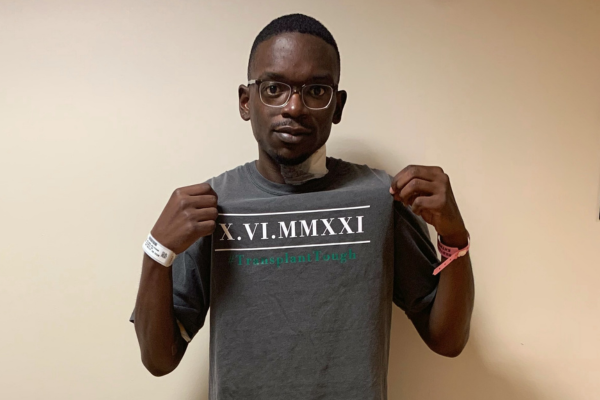
Lance had a life like every other college student. He studied for classes and enjoyed time with friends. Things started to change at the start of his sophomore year.
"My head hurt and my vision was blurry. I went to the student health and wellness office on campus and found out my blood pressure was outrageously high. They sent me to the emergency room where I found out I had kidney disease," Lance said. "Three days later, I learned I had stage 5 kidney failure at age 21."
Lance was shocked. He ate well, exercised, and did his best to care for his health, but his kidneys failed in a similar way to his parents.
"It was unbelievable and scary. I was healthy, played basketball, and barely ate fast food. Then all of a sudden, I was sick. I called my dad and learned he was the same age when he was first diagnosed," said Lance. "I did not know my kidney numbers before this. Looking back, that is what I would have changed."
Two months later, his kidney function dropped to 3%, and he was rushed to the hospital for emergency hemodialysis. He would remain there for fifteen days before returning to campus to continue his education and start in-center hemodialysis. This was difficult enough, but it wouldn't be the only painful change for Lance to deal with that year.
"The pandemic started. My first in-center dialysis session was also the first day of the lockdown," Lance said. "In May, my father passed away. I'd already lost my mom in 2019 after her kidney transplant failed from complications related to kidney and heart disease. It was a lot of difficult things to go through back-to-back."
Are you at risk of kidney disease? Take this one-minute quiz to find out. It may just save your life.
Going on dialysis and getting a kidney transplant
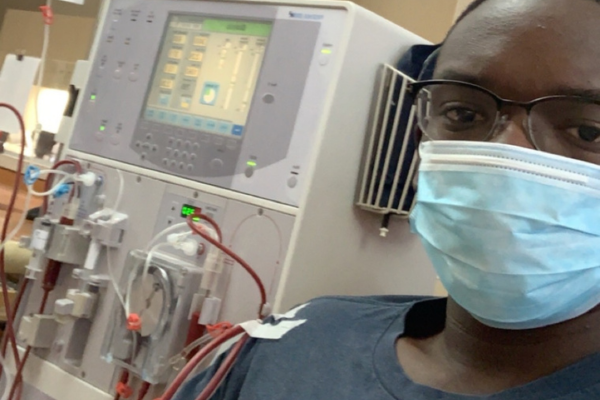
Lance did his best to keep up with coursework for over a year while going to dialysis treatments.
"Having a machine pull toxins out of my body like that was very tough. I passed out and had cramps–these were things I'd never experienced on that level before," said Lance. "The different medical procedures were also difficult–I had to get a catheter placed, then removed, and have a fistula put in. I had to get used to going to dialysis three times a week for three and a half hours a day. I always felt drained and tired."
Despite the difficulties Lance experienced, he was still grateful for the lifesaving treatment even though he had to take a semester off to focus on his health.
"We look at dialysis as a very depressing thing. You feel like you're forced to do something that is never going to end. But at the end of the day, dialysis is a positive thing. It's a blessing to have a machine that acts as a replacement kidney even if it is difficult,” said Lance. “My experience with dialysis was positive overall. My nurses and the staff did a great job tending to me and making sure I had everything I needed."
While Lance had a positive dialysis experience, this is not the case for everyone. Depression is a common occurrence in dialysis patients; however, it is very treatable! Speak with your healthcare team to find a solution that works for you and helps you feel better. Learn more about dialysis and depression.
When Lance re-enrolled, he decided to switch his major from Biomedical Engineering to Business Administration and focus on finding a living kidney donor.
"I gave the same energy, focus, and passion I apply to my own life to becoming a good transplant candidate. I ate right, exercised, followed fluid limitations, and listened to my doctor. I also shared my story on social media and had around 40 people fill out the form to get evaluated as a living donor. Unfortunately, there was an issue somewhere with data tracking, and all the information from the people who applied was lost," Lance said. "Three months later, I found out and put my story back up on social media. Another student who knew me from campus wanted to help since she'd heard I was a respected, positive person. She applied and ended up being a match."
In October 2021, a year and eight months after Lance's kidneys failed, he underwent his last dialysis treatment.
"My last dialysis session was the day before my transplant. It was a wonderful feeling to know that would (hopefully) be the last time I ever needed dialysis," Lance said. "The surgery went amazingly well and I'm so grateful for that student who gave me a second chance at life."
Are you interested in becoming a living donor? Sign up for "Becoming a Living Donor", a free online course that teaches you everything you need to know about donating a kidney.
Advocating for kidney disease patients
Once Lance got his kidney transplant and graduated college, he dove headfirst into kidney advocacy.
"Fighting kidney disease has been a passion of mine for so long because I watched my parents go through it. I always knew I wanted to do something to help kidney patients, so I joined several advisory boards for different patient-related research and study groups. I'm currently in an APOL 1 gene or Apollo gene research study by the National Institute of Health," Lance said. "The APOL 1 gene is primarily found in African American people who have chronic kidney disease. They're trying to figure out, is it this specific gene that is leading to a higher chance and an increased risk of developing chronic kidney disease in African American ancestry in patients?"
Lance also became a Voices for Kidney Health advocate and went to D.C. during the 2023 Kidney Patient Summit, NKF’s premier advocacy event.
"There are millions of people around the world that are suffering from what my parents and I suffered from. I wanted to do more to help so I reached out to National Kidney Foundation and other organizations active in the kidney community," said Lance. "My first Kidney Patient Summit was amazing. I represented constituents from the state of Alabama because that's where I was diagnosed and got my transplant. On the first day, we learned so much and broke into groups to prepare. The next day, we went to Capitol Hill and got to meet all the representatives from Alabama. We pushed for bills that improved transplant and kidney disease funding. The amount of funding that kidney disease research received does not equal the number of people that suffer from this disease. I hope I get to do it again. I felt like the congresspeople were impacted by our stories."
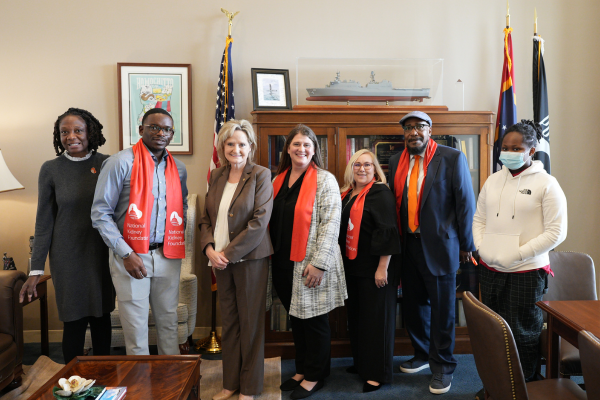
See all the ways you can take action today.
When Lance isn't advocating for kidney health or participating in research, he's making connections with other kidney disease patients.
"I've taken it upon myself to help other patients as a mentor. Right now, I am communicating with another student who is getting his own kidney transplant soon,” Lance said. “I've been talking to him on the phone, answering questions, and offering comfort. The biggest thing I recommend is to be your own advocate, take care of yourself, and try to change your narrative from negative to positive.
If you are interested in mentoring patients like Lance does or finding a mentor for yourself, join NKF Peers.
"Being a kidney advocate and just helping others has been a very rewarding journey. Being able to put a smile on someone else's face is a great feeling and I recommend anyone considering advocating to do it,” said Lance. “As an advocate, you get to directly share your experiences with other people and make a difference. It is the most rewarding part of my life."
Are you ready to make a difference? Become a Voices for Kidney Health advocate.
